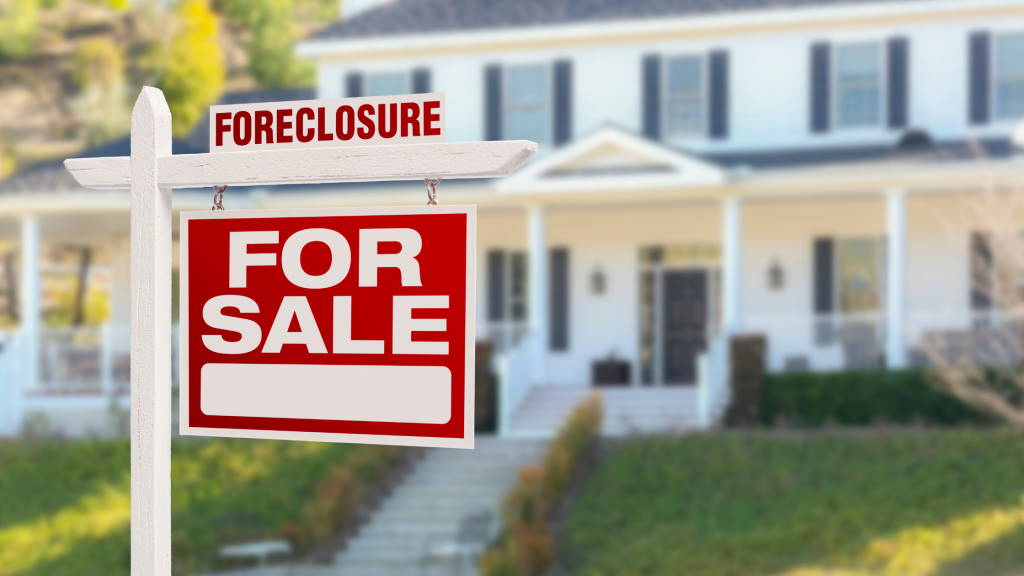The Short Answer
Buying a foreclosed home presents a potential opportunity to secure a good real estate deal, but it’s not without its risks. Foreclosed properties or bank owned properties are often sold in as-is condition, requiring buyers to address any maintenance and repair issues. Moreover, title issues and existing tenants can complicate the purchase process. Competition from other buyers, including investors, adds another layer of risk.
However, despite these challenges, foreclosed properties can be attractive due to their lower prices and potential for renovation. To mitigate risks, buyers should conduct thorough due diligence, including title searches and property inspections, and set a realistic budget for repairs. Ultimately, the decision to buy a foreclosed property depends on individual financial circumstances, investment goals, and risk tolerance.
Skip To
The Main Risks Of Buying A Foreclosed Home
Buying a foreclosed home can be an effective way to pick up a good real estate deal, but there are also potential risks to be aware of, before considering a purchase like this. Here are some of the main risks to take note of:
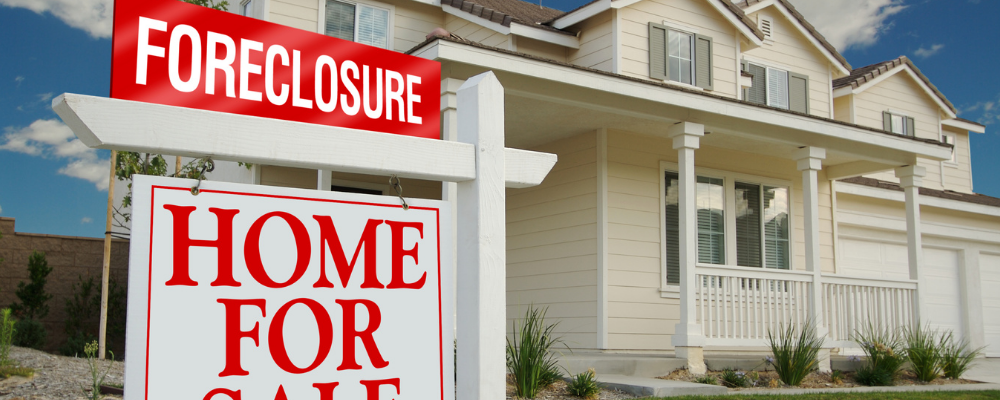
Risk 1: Condition of the Property
One of the most common pitfalls of buying a foreclosed property is that they are sold as-is and you don’t always know the condition of the property. It’s important to bear in mind that foreclosed properties are being given up by owners who can no longer afford them. This means that these properties are likely to be in need of repairs and maintenance, as the current owners aren’t likely to have kept up with maintenance.
Foreclosed properties sometimes sit abandoned for months before they are sold, which means they may fall into disrepair. Many of the problems with the property may only become clear after the sale, in which case the buyer is responsible for fixing them. This can be a costly affair and eat into the profits for real estate investors who bought the home at a discounted price, in order to fix it up and sell it for more.
Risk 2: Title issues
There may be liens associated with the property, unpaid property taxes, or even legal disputes, which would put the new owner at an immediate disadvantage because they would have to get the title issues cleared. This often involves legal assistance and can be time-consuming, particularly with legal issues such as property taxes.
Risk 3: Existing tenants
Some foreclosed properties may have tenants in them already, the problem with this is that they may need to be evicted and the eviction process can be long and problematic. The tenants may not have kept up any maintenance on the property either, which would impact the condition and add to the expenses for buyers. Buyers may need to undergo legal proceedings to evict the tenants and this can be both costly and time-consuming.
Risk 4: Competition
When buying a foreclosed home, you’ll face some stiff competition as real estate investors and many other potential buyers try to snap up the deal. There are often several buyers willing to make an offer on foreclosed homes, so you may lose out to one of these if their offer is better than yours. Real estate investors who can offer cash deals are often given preference by banks, who would always take the less risky way out.
Risk 5: May not be a good deal
Not all foreclosed homes are good deals, in some cases the number of repairs that are necessary, make the home more expensive and potentially not worth purchasing. Foreclosed homes come with many risks and, in some cases, these can be costly, making the deal more costly than its worth. Weighing up the cost of the home, along with the cost of the repairs and renovations that are necessary will be a crucial exercise.
Why Do People Buy Foreclosed Properties, Despite These Risks?
Despite the risks, foreclosed properties can offer a real estate investor a few great opportunities. While people buy these properties for a variety of reasons, here are some of the most common:
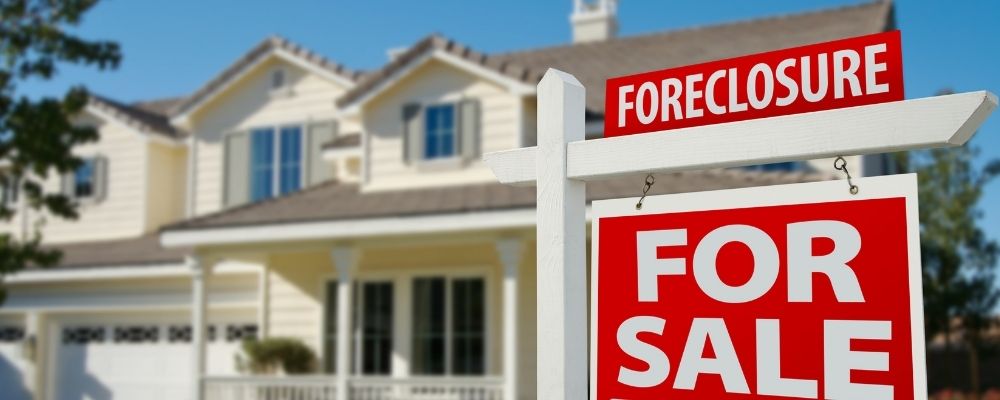
1. Lower price
The biggest drawcard for buyers considering foreclosed properties is the price. Foreclosed homes are often offered at prices below market value, which allows buyers to snag great deals. This means that buyers can pick up properties that are great value for money, and potentially increase their returns on the property.
Investors can simply do some renovations and easily increase the value of a foreclosed property, and then resell it to earn a profit. This is attractive for those who are interested in doing rehab projects, or who are looking to benefit from the opportunities offered by a fixer-upper.
For homebuyers, foreclosed properties present an affordable entry into homeownership and allow them to purchase a home that they wouldn’t have been able to afford otherwise, without needing a real estate agent.
2. Faster closing
Foreclosed home sales are usually faster transactions, about 30 days on average, which means that this avenue offers buyers a fast closing option. For homebuyers who need a house quickly, or investors who are looking to snag a good deal fast, this can be a game-changer.
3. Improve communities
Purchasing foreclosed properties gives buyers the opportunity to improve communities by renovating neglected homes in the area. Buyers who are passionate about improving neighborhoods and fostering community development may see purchasing foreclosed properties as a way to make a positive impact.
4. Build sweat equity
Some buyers choose to invest in foreclosed properties so that they can buy it for below market value and make improvements over time by putting in sweat equity. Homeowners or investors use foreclosed properties to increase the value of their investment over time, and essentially build wealth by making improvements to do this.
How To Mitigate The Risks Of Buying A Foreclosed Home
While foreclosed homes come with some risks, these can be mitigated with careful planning and a knowledge of what to look out for. Here are a few tips to use to avoid the risks that come with foreclosed homes, where possible.
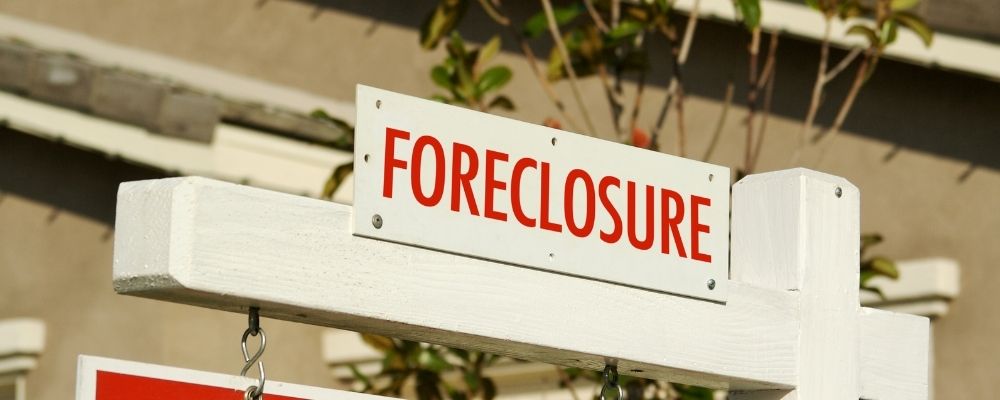
Tip 1: Title search and insurance
Title issues are one of the biggest risks with buying foreclosed homes, as such title searches and insurance are a must-do. Doing a title search involves looking at the public records to verify the property’s ownership history and checking that there are no outstanding claims on the property. These claims can lead to title issues for new owners and impact their rights. Title insurance is also important as this will provide protection against any title defects or issues that may arise.
Tip 2: Full assessment of repairs and renovations
Before purchasing a foreclosed property it’s a good idea to do a full assessment of the repairs and renovations that the property needs. This means conducting a home inspection using a professional and identifying the structural issues or cosmetic flaws that will need to be fixed. This assessment should include the age of the home, the condition of all the major systems, and the scope of improvements that need to be done to bring the home up to standard. By being prepared for the financial implications of the repairs, this minimizes any nasty financial surprises.
Tip 3: Get familiar with landlord-tenant laws
Foreclosed homes sometimes have tenants already occupying them, in which case, the buyers will need to deal with the tenants, without the help of a real estate agent. In some situations, the tenants may need to be evicted, in other instances buyers will become instant landlords who need to manage the tenants. Either way, getting familiar with landlord-tenant laws is the best way be prepared for dealing with tenants, and knowing the ins and outs of evictions and mitigating the risk of encountering legal issues with regards to the tenants.
Tip 4: Conduct due diligence
Due diligence is a comprehensive process of research and analysis conducted before finalizing the purchase of a foreclosed property. It involves gathering information about the property’s history, condition, and legal status to assess its suitability as an investment. Due diligence includes property inspections, a financial analysis, market analysis and a legal review of the foreclosure process. Due diligence allows buyers to identify potential risks and make informed decisions about whether to complete the purchase or not, based on further knowledge of the foreclosure process.
Tip 5: Set a realistic budget
Setting a budget that is realistic and reasonable is the best way to avoid overspending on the repairs and renovations that a foreclosed property requires. This budget should include the price of the home and how much you’re willing to spend on the renovations as well. A detailed budget will mitigate the risk of overspending.
Is It True That Foreclosed Homes Are Cheaper Than Normal Homes?
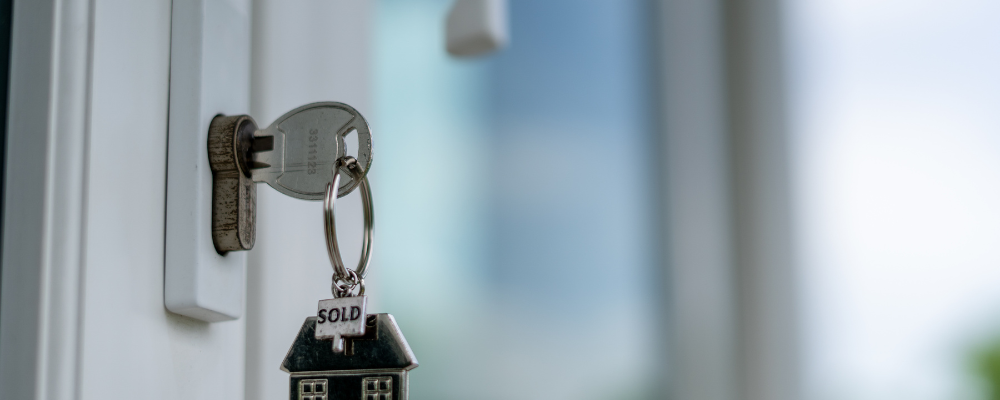
Yes, foreclosed homes are often sold at a price that is lower than market value. That is because these properties are typically in need of some maintenance and repairs, and they are often neglected or not maintained by the owners who are typically in foreclosure because they can no longer afford the mortgage payments.
Foreclosed homes or bank owned properties are usually sold as-is, which also means that buyers have to purchase them as they are, and the seller is not liable for making any repairs or doing any renovations before the sale. Sellers typically cannot make any repairs to the property anyway, as they are likely defaulting on their mortgage payments. This contributes to bringing the price down and makes these homes cheaper than homes that are not in foreclosure and that do not need extensive repairs.
Final Thoughts - Should You Buy A Foreclosed Property?
The decision on whether to buy a foreclosed property or not is dependent on your financial situation, investment goals, risk tolerance and aptitude for renovation projects. So, ask yourself the following the questions:
- Do you have the financial resources to purchase a foreclosed property and cover the cost of the repairs and maintenance?
- Does a foreclosed property purchase align with your financial and investment goals?
- What is your risk tolerance and are you willing to manage the risks associated with a foreclosed property?
- Do you have the skills and expertise required to upgrade a foreclosed property?
- Does the real estate market lend itself to purchasing a foreclosed property in the area?
These questions should guide you towards coming to an informed conclusion on whether you should delve into the world of foreclosed properties and what the risks of buying a foreclosed home are.
